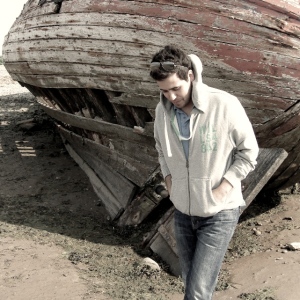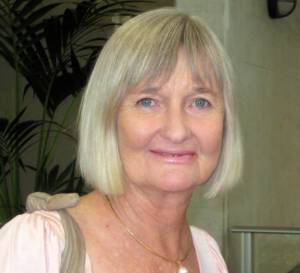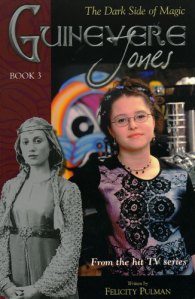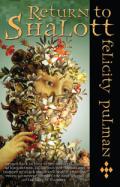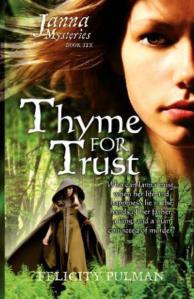I have been featuring fantastic female fantasy authors (see disclaimer) but this has morphed into interesting people in the speculative fiction world. Today I’ve invited the talented Les Petersen to drop by.
Look out for the give-away at the end of the post.
 Q: Your web page doesn’t have a bio. I tried to find a bio for you on Wikipedia. The closest I came was your numerous listings as cover artist of various books. Next I looked up your listing on Linked in. This is about as brief as a bio gets ‘self employed illustrator and scriptwriter’. I know you live in Canberra, are married and have a son. Are you being deliberately mysterious or is a bio just something you haven’t gotten around to doing?
Q: Your web page doesn’t have a bio. I tried to find a bio for you on Wikipedia. The closest I came was your numerous listings as cover artist of various books. Next I looked up your listing on Linked in. This is about as brief as a bio gets ‘self employed illustrator and scriptwriter’. I know you live in Canberra, are married and have a son. Are you being deliberately mysterious or is a bio just something you haven’t gotten around to doing?
Not so much ‘haven’t got around to it’, rather I don’t really see the need for it. I know I’m not good at self promotion, but again there’s no need for me to promote myself at present. I have a steady income and so throwing myself to the lions (both fans and clients) wouldn’t necessarily be healthy. Maybe I’m a little bit private, as well, rather than being mysterious. But just for your info, I come from a large family of talented musicians and film makers, but I’m the one who wants to draw the pictures. My wife and son are my own world of wonder.

Michael Whelan's Cover
Q: Where did you go to study art (if you did study formally)? What artists inspired you to dedicate yourself to this calling, to the speculative fiction genre specifically?
Blame Michael Whelan. Short answer but it packs a punch. I saw a cover of his (Edgar Rice Burroughs’ Princess of Mars) way back in the 70’s, and loved it. Tried to paint like that, but I don’t have Michael Whelan’s sense of colour. That drove me to follow up on art as a course of study and I did 6 years at a couple of art schools. BUT I didn’t end up painting, rather I ended up print making for other artists because that paid a few bills. I learnt then that you can get trapped into professions you don’t enjoy by not sticking to your guns. Eventually I was lucky enough to get work as an illustrator and things turned around. But I would have wasted about 10 years doing something I didn’t really enjoy as much as I had hoped to. And artists can be suck picky, fernickety people with egos as big as houses.
Q: You have done at least 40 covers for speculative fiction books, magazines and anthologies (see ISFDB list here). This data base only goes up to 2009. In the book cover section of your web page there are 13 recent covers and it looked like only two of these were from the end of the ISFDB list, so you must have done more covers recently. Do you have a couple of favourites and if so, why?

Shadow Queen by Deborah Kalin
Yes, the database is a little out – I am pushing 100 covers now. Many of the missing ones are for ebooks or self-publishing clients. That area of publishing is growing all the time and is now the mainstay of my illustration work.
As to favourites, I think Shadow Queen for Deborah Kalin and Myrren’s Gift for Fiona McIntosh.

Myren's Gift by Fiona McIntosh
Both these really pushed me for design and the colour work started to get where I was trying to go, and the task of painting them was extremely enjoyable. Both began as scribbles on a piece of paper and expanded out to a full spread. Myrren’s Gift book design was also shortlisted for the 2005 APA Book Design Awards, which made everyone happy. It was my first cover to break the US market.
 Q: I see you did the cover for Isobelle Carmody’s The Stone Key. I love this cover. Did you do the whole series? They have a wonderful feel. Could you describe for us the consultation process that went into the design of these covers and then the actual physical process involved in constructing the covers?
Q: I see you did the cover for Isobelle Carmody’s The Stone Key. I love this cover. Did you do the whole series? They have a wonderful feel. Could you describe for us the consultation process that went into the design of these covers and then the actual physical process involved in constructing the covers?
In truth, I can’t take credit for these covers. Cathy Larsen, the lead designer from Penguin is responsible for the design of this series; I added some of the backgrounds and a bit of jewellery etc, but Cathy’s ‘touch’ is what makes it so successful.
As to the process: Cathy sent through a design brief, which lays out what is needed for the cover. I then worked my magic on the backgrounds and she incorporated that component into the design, changing things to suit the finished product. Interestingly, the most difficult part of the process is to get sign-off from the marketing team at Penguin (it’s the same at any publishers – they are trying to get a perfect product, after all). The design team can ask for change after change, to the point it kills a product’s freshness and drives designers and illustrators batty. Note how I call the book a ‘product’. That’s exactly what we have to keep in mind when working on a cover – we are selling the author and the story and the packaging must evoke the power of the writing. It can be tricky, but that’s what makes in an interesting profession.
 Q: Back in 2001 you did the cover for Trudi Canavan’s best selling book The Magician’s Guild. The new covers for Trudi’s books are very different. (They were produced in the UK). Cover styles are constantly evolving what do you think of the current ‘look’ for fantasy covers?
Q: Back in 2001 you did the cover for Trudi Canavan’s best selling book The Magician’s Guild. The new covers for Trudi’s books are very different. (They were produced in the UK). Cover styles are constantly evolving what do you think of the current ‘look’ for fantasy covers?
The short answer is ‘fashions change’. I think a cover has a life of about three years before it’s considered in need of a renovation. And there are regional differences – something marketable in Aus or the US is definitely not ok in the UK, and vice versa – so each area produces their own covers. What is frustrating about the process is every now and then you see your cover design ‘utilised’ by another illustrator working outside Australia, probably because they have been asked to adapt what you have provided. But you live with it because the contracts are fairly flexible and the remuneration is ok.
The other side of the coin is that illustrator’s change. Many new skills are need and we’re ‘updated’ as new illustrators come through. That’s life. We move on to other projects, other genres, other lives, really. I’ve been fortunate to have work trickle in, though the nature of it is different. I spent some time doing computer games, and that’s a whole new board game – a production line kind of work ethic is needed, with its own challenges and deadlines.

UK cover of Trudi's book
One influence worth noting on illustration is the influence of computer games, and special effects from movies. They’ve really shaken up our skill sets and many publishers expect you to have that kind of vision for their covers. Interestingly, the response to it has been a reliance on photo-manipulation and 3D modelling, which sometimes works and sometimes doesn’t.
And finally, there’s a wealth of talent out there. Now we can get illustrators from around the world working in our ‘patch of dirt’. I’m amazed at some of the Asian illustrators that are around – that’s skill to die for. Sometimes when I see their artworks, I feel like a fake, or a hack. Young, talented, and their currency isn’t as strong as ours – they’ve got everything going for them.
Q: You were one of the Exhibiting Guest Artists are Conflux in 2006. Did you come to fandom as a fan, or did you come to it after you became a professional artist?
I came along as a professional artist. Though I love the genre, and especially Terry Pratchett’s humorous take on it (my Fav author of all time), I wouldn’t put myself down as a genre ‘fan’, because I read so widely and have a few other interests. I go along to see the authors and some of the people I know, but that’s about the extent of my participation. Sorry. Mind you, if I had a fan base…nah, I’d probably die of embarrassment.
And 2006! You realise that’s five years ago already. Sigh. What good have I done since then? No, that’s a rhetorical statement.
 Q: In 1998 you were shortlisted for the George Turner $10,000 Fiction Prize for your novel Supplejack. Are you still writing? I see you’ve had several short story sales. What have you done with this book?
Q: In 1998 you were shortlisted for the George Turner $10,000 Fiction Prize for your novel Supplejack. Are you still writing? I see you’ve had several short story sales. What have you done with this book?
Supplejack sits in the archives of my computer, still unpublished. I’ve written five novels since then, all of which exist in the archives, probably because I don’t self manage well. I’m glad to say that I still write, but have moved onto scriptwriting, and have produced six full length screenplays and about twenty shorts – and you guessed it, all in the archives of my computer, though I have produced and filmed one of the shorts myself, and two of the full length and one of the shorts have been optioned by productions companies. Those of course have been shelved though because of the global financial meltdown (or whatever the current term is being bandied about).I still hold out hope.
Q: On your web page you have the stills from some animations. Are you animations up on You Tube? (I looked but couldn’t find them). Do you have a secret project which you are going to unveil to the world? If so, what is it?
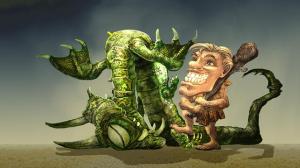 Yes, I’m working on a secret project, but if I tell you what it is, it won’t be a secret.
Yes, I’m working on a secret project, but if I tell you what it is, it won’t be a secret.
OH OK, SINCE YOU INSIST.
I’m working on a 17 minute short ‘The Weatherman’s Gift’, which is part puppetry, part 2D animation, part 3D animation. It’s based on a short script I wrote, which was in turn based on a really crappy animatic/animation I did the Parallel Lines Film Competition in 2010. I really  entered that competition to test a few animation techniques and I quite liked the story concept and the feel of the work, in the end. So decided I’ll have a try building it into something magical.
entered that competition to test a few animation techniques and I quite liked the story concept and the feel of the work, in the end. So decided I’ll have a try building it into something magical.
The plan is I will be making a music video first, based on the theme song my brother wrote so I can learn a few puppetry techniques, and then (using the skills I learn) produce the final 17 minute version.
At this stage I’m building the background mattes and puppets, and finishing the storyboards. I’ve been warned by Jonathan Nix not to do the final product until the animatic for the final version is exactly as I want it to be, and I’m taking that advice seriously.
Q: Also on your web page you have some character designs. Are these from your animations or for something else entirely?
Something else entirely.
Q: And then you have your Gallery Pieces, which you say you do to keep your skills ticking over. What programs have you been playing with to develop your skills?
 Over the last five years, I work almost entirely from pencil sketches, utilising Poser for figure maquettes and Photoshop for production final work, but recently I’ve moved to using Vue for landscapes and I’ve been looking at a lot of film editing software, as well as 2D animation packages. I’m ok with some 3D packages, and have gotten familiar with particle system generating software to round out animation effects, but there’s still so much that interests me. I’ll probably be fiddling with all these packages till I go blind. But I always, always, always have the base work of a concept drawing to go from. It’s the cornerstone of the craft, I believe.
Over the last five years, I work almost entirely from pencil sketches, utilising Poser for figure maquettes and Photoshop for production final work, but recently I’ve moved to using Vue for landscapes and I’ve been looking at a lot of film editing software, as well as 2D animation packages. I’m ok with some 3D packages, and have gotten familiar with particle system generating software to round out animation effects, but there’s still so much that interests me. I’ll probably be fiddling with all these packages till I go blind. But I always, always, always have the base work of a concept drawing to go from. It’s the cornerstone of the craft, I believe.
Q: There are also the matt paintings. This makes me think they are back grounds for animations. What have you been doing with these matt paintings?

Three of these are backgrounds for the short film I produced (Treasure) the others are for a Star Wars fan film by a New Zealand company (which incidentally did very well in a competition judged by George Lucas) as well as a background for The Weatherman music video animation. More will be added as I complete them.
 Q: What advice would you give an aspiring artist just starting out?
Q: What advice would you give an aspiring artist just starting out?
- Take a deep breath.
- Work your butt off.
- Keep a drawing pad handy and use it frequently.
- Get thicker skin on your ego because you’ll get battered and bruised.
- Don’t concentrate on just one genre.
- Marketing people are GODS and can destroy in an instant what you’ve slaved for weeks over so give them what they ask for as well as something you’d be proud to put in a portfolio if they knock it back.
- Continue building your skill sets.
- Stay current.
- Watch what your competitors are doing, not so you rival them but so you get a sense where the market is going (very important).
- You won’t get rich doing this job.
- Small jobs and charity jobs can bring paying clients your way, and give you a chance to flex your creativity.
- Read every word of the brief and watch your image dimensions/ratios.
- Leave yourself time to do the fiddly bits ‘cause the details make the work sing.
- If you’re using photo manipulation, watch the colour matches, the resolution of the originals and the moiré pattern.
- Black is a colour too (that will cause a stir!). But printers have problems with it so check with your publisher.
- Contracts get signed but the details are quite often ignored. If you REALLY need to bark about something in the contract, do so and stick to your guns and ask for the contract to be changed before you start the work. BUT be warned, you’ll probably find work hard to get from that publisher if you’re asking too much.
- Good faith is worth more than a contract, and most publishers work well with good faith. But a contract trumps good faith in a court of law.
- Be EXTREMELY flexible and forgiving.
- Work your butt off.
Oh, and one last thing – many people – and that includes authors and designers – “see” images in their mind’s eye in three dimensions so you’ll find they expect to see front and back of objects, as well as all the minute detail, all at the same time – so when you get to the nitty gritty don’t stress. Do your best and learn to smile and mutter under your breath at the same time.
 Q: I was prompted to start this series of interviews because there seems to be a perception in the US and the UK that fantasy (in books) is a bit of a boy’s club. I’ve come across quite a bit of talk on the blogs recently about female comic artists and writers, and their lack of representation in large companies like DC. You have illustrated for magazines and done covers. As an artist do you think there is a difference in the way males and females are portrayed on speculative fiction book covers?
Q: I was prompted to start this series of interviews because there seems to be a perception in the US and the UK that fantasy (in books) is a bit of a boy’s club. I’ve come across quite a bit of talk on the blogs recently about female comic artists and writers, and their lack of representation in large companies like DC. You have illustrated for magazines and done covers. As an artist do you think there is a difference in the way males and females are portrayed on speculative fiction book covers?
Isn’t that two questions? Such as ‘why aren’t there more female illustrators represented by…?’, or ‘why is there a lot more male illustrators?’ or something like that, and then ‘do I think there’s a difference etc?’
If you want an answer that covers both sides of the coin, blame the publishers and their marketing teams. We illustrators do as we are briefed to and it’s up to the publishers to hire the illustrators to do the work. The old ‘scantily clad woman in a battle bikini’ was something that appealed to the masses way back in the 60s etc, so the marketing teams wanted that, but tastes have changed. Now they want strong female role models and men without shirts, or sparkling teenage vampires and werewolves that look like Adonis. Tastes change. There’s no systemic movement to produce work that denigrates any one particular gender or limits them to the backyard studios. Everyone has to find their way through the morass, and skill and a great deal of luck gets you through.
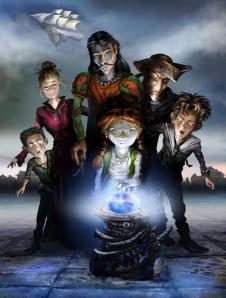 I don’t know if there’s a majority of males in the illustration profession. Both sexes are capable of the skill sets required and most of the students going through art school with me were female, but few of them did anything with that skill. They turned to other professions – usually within management, actually.
I don’t know if there’s a majority of males in the illustration profession. Both sexes are capable of the skill sets required and most of the students going through art school with me were female, but few of them did anything with that skill. They turned to other professions – usually within management, actually.
All my ‘bosses’ in publishing, with one exception, have been women. I don’t see a gender bias against women in Australia. Also, I like to believe I was fortunate enough to get a job as an illustrator not because I was a male but rather because I’d put a bit of effort into learning the skill, then had a stroke of luck when I put an image on a webpage that Trudi Canavan saw and followed up on. In other words, the skill ‘spoke’ and I was willing enough to sell my soul to get the work that came from that.
Q: Following on from that, does the gender of the writer/artist change your expectations when you approach their work?
 No. Out of all the covers I’ve done, with about five exceptions, the authors I have created covers for have all been female. There are very subtle differences in writer’s voice that you pick up on (please don’t ask for examples) and overall women can write family situations a bit better, and men write action better, but that’s probably some reflection on past expectations that boys will play with soldiers and girls with dolls or some such rubbish– and we know that is not necessarily the truth. However, having said that, in the wash authors are fairly similar and they are usually supportive of your efforts. Some even surprise you and change their work to suit your illustration.
No. Out of all the covers I’ve done, with about five exceptions, the authors I have created covers for have all been female. There are very subtle differences in writer’s voice that you pick up on (please don’t ask for examples) and overall women can write family situations a bit better, and men write action better, but that’s probably some reflection on past expectations that boys will play with soldiers and girls with dolls or some such rubbish– and we know that is not necessarily the truth. However, having said that, in the wash authors are fairly similar and they are usually supportive of your efforts. Some even surprise you and change their work to suit your illustration.
Q: And here’s the fun question. If you could book a trip on a time machine, where and when would you go, and why?
I thought long and hard about this and decided ( as all of you would have no doubt done instantaneously) that this question shouldn’t be answered seriously. If it was, and I said I wanted to go back into the past, it’d be too much about past regrets. If I went into the future, I’d be dialing up the expectation and a type of voyeuristic adventuring. So instead, I’ll strap on frivolity and elect to go sideways, into another dimension, to see if I was ever answered this question with a decent answer instead of all this waffle. Then I’d head over to Dixie’s house and she can explain all that stuff about birds and bees again. Lots of miming. Very interesting conversation. Especially as I don’t know anyone named Dixie. And never will, probably.
Giveaway Question:
A free custom ebook cover illustration. Quest ion: Who was Dixie and what did she tell me about the birds and bees, and how did that affect me for the rest of my life?
Les says he’s happy to talk illustration with others if they want to email him through his web page. (If you google him, don’t get Les mixed up with Leslie Petersen a ‘fine artist’).
Contact Les on Linkedin.
 Fiona just flew in and was suffering from jetlag when she wrote this original post. Apologies for the confusion. See Update.
Fiona just flew in and was suffering from jetlag when she wrote this original post. Apologies for the confusion. See Update.

![Newton-CityOfRuinPBUK[3]](http://writersagainstobscurity.files.wordpress.com/2011/11/newton-cityofruinpbuk3.jpg?w=198)
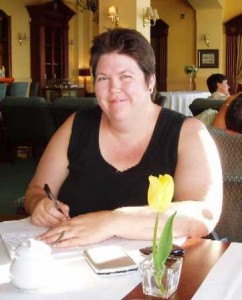



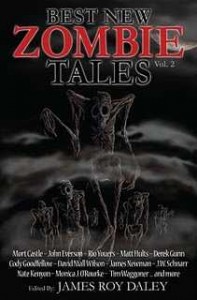




























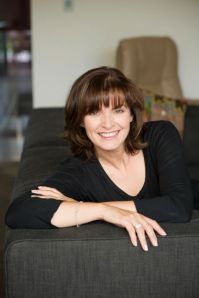
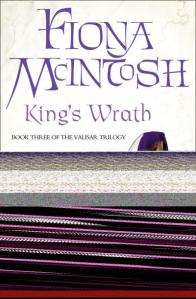







![Newton-CityOfRuinPBUK[3]](http://writersagainstobscurity.files.wordpress.com/2011/11/newton-cityofruinpbuk3.jpg)
